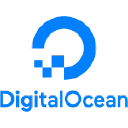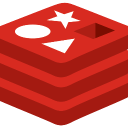I Made An Ecommerce App That Generated Over $50M Of Extra Revenue For My Clients
Note: This business is no longer running. It was started in 2018 and ended in 2022. Reason for closure: Acquired.
Hello! Who are you and what business did you start?
My name is Artyom Rabzonov and I am the CEO and founder of Exto.io. Before organizing this business, I co-owned Aheadworks, one of the most famous extensions development companies for Magento.
Exto.io was founded in 2018. Creating a family of e-commerce solutions for Shopify, Magento, and BigCommerce, we soon concentrated on our flagship product Recom.ai – the application for automated upselling and cross-selling.
Today, Recom.ai has evolved into a full-fledged marketing tool with a $96K monthly turnover. Our clients vary from small mom-and-pop shops to enterprise companies. And we are proud that all of them use our product to meet everyday e-commerce challenges and boost sales.
Our goal is to help online merchants around the globe sell more, grow faster, and engage customers with effective sales strategies.
What's your backstory and how did you come up with the idea?
I devoted a decent amount of time to Ahedworks, where I gained experience in various...


























